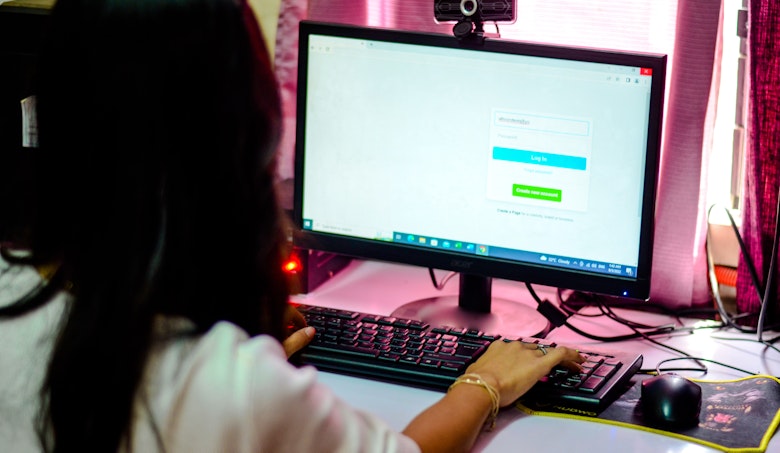The Netherlands must lead the way and tackle online child abuse
OPINION - Online sexual abuse. For many people, it’s an abstract concept. Which is lucky, because if it rears its head in your life – be it as a victim or as a parent or someone close to a child affected by it – it has a devastating effect. One of the most terrible examples is that of 15-year-old Amanda from Canada. She decided to take her own life after nude images of her were spread online by a 44-year-old Dutch man. Something like this must never happen again, and new legislation being developed by the European Commission could bring positive change. Could, because the Netherlands has considerable qualms about this law. That has to change, according to Julie Verhaar, CEO of Terre des Hommes: "Online sexual abuse and exploitation must be tackled. It’s time the Netherlands took a leading role in this."
Numbers
It is estimated that over 72,000 girls and 24,000 boys aged 16 or 17 in the Netherlands experience some form of online sexual harassment at least once. These include online requests for sexual images or videos against their will, and being sent nude images or sex videos. The figure that really turns your stomach relates to online child abuse. In 2021, 85 million images and videos of child sexual abuse were reported worldwide; horrific material that can be shared fairly easily on the world wide web. Of course, big companies like Microsoft and Google already scan intensely for offensive images, but this is not enough. Fresh footage of child sexual abuse can get past online scanners more easily than known material. The European Commission wants to put an end to this with new legislation. While you might think that should not pose an issue, the opposition lobby is hard at work and the Netherlands has considerable qualms about the law.
Privacy
The biggest concern is privacy. According to the opposition lobby, the new law has major implications for journalists and the extent to which they can protect their sources. But ordinary citizens will also be affected by this, according to opponents: for example, if you send a picture of yourself in swimming trunks or a swimsuit to your partner, your message will be vetted by the social media you use, such as WhatsApp or Facebook. Terms like "violation of privacy", "curtailment of freedom of speech" and "patronising" are quick to be thrown around – but is this really the case? I don't believe so. We are mostly dealing with a fear of the unknown here, because people are not fully aware of how the technology used works. Ultimately, it’s the same technology that is already at work stopping all malware coming our way – just better, and one that also takes our privacy into account. After all, let's be honest and remember that the most severe privacy violation for a child probably happens when the worst moment of their life is shared online thousands of times and haunts them for life. That is the privacy issue we need to focus on.
Firewall
Think of the new technology as a firewall; most people with a laptop, tablet or smartphone have something similar installed. You naturally don’t want to get one of those pesky viruses, or worse, accidentally download a malicious file that completely takes over your device. That’s how I view the legislation that is being drafted: a firewall against all the terrible images that are going around on the web. It will make receiving them harder, but even better, so will sending them! As soon as someone asks your underage daughter to send a nude photo of herself and she wants to do it, the computer will say NO! A potential disaster is avoided, and consequently a lifelong fear that those photos might one day surface. Perpetrators will find that this law makes life very difficult, and reduces the possibility of images of child sexual abuse spreading like a virus across the internet. And don't forget the added bonus: the chances of perpetrators actually being traced are increased. The firewall does its job, protecting children and those close to them.
Vote positive
The European Parliament will shortly be voting on the law. Whether the law will be adopted remains to be seen. Particularly by the Netherlands, a country where tech companies are keen to be based. A matter of coincidence? Because these are precisely the companies that are going to find life harder under the new law. It is time the Netherlands shed the straightjacket of privacy arguments. After all, we can have both: respect privacy and protect children. And you do that by taking a leading role and fully supporting this European law.
--> A shortened version of this opinion piece was pubblished in the Dutch newspaper AD

